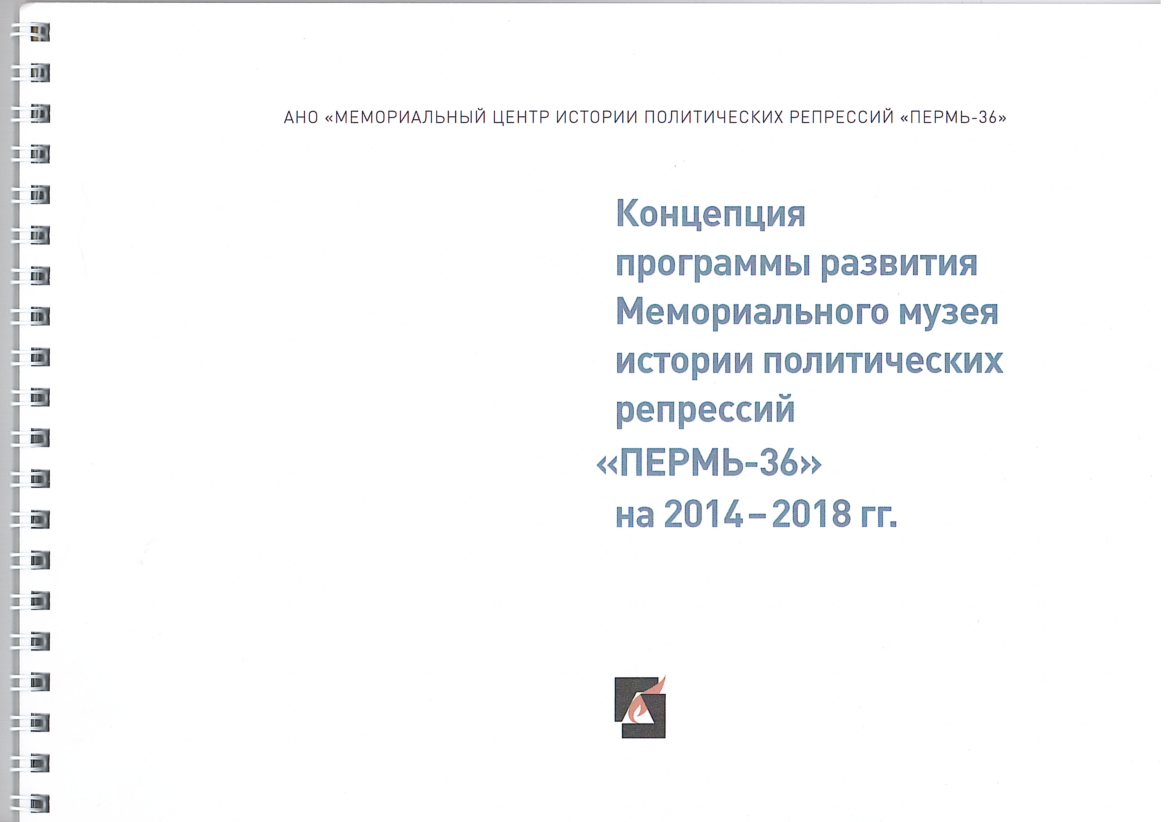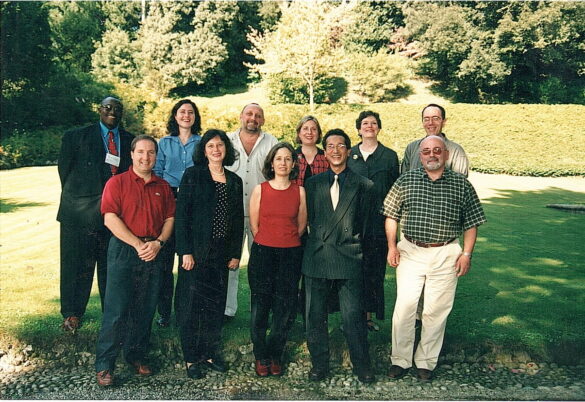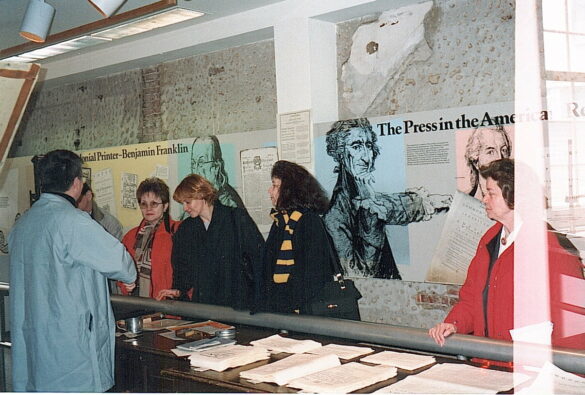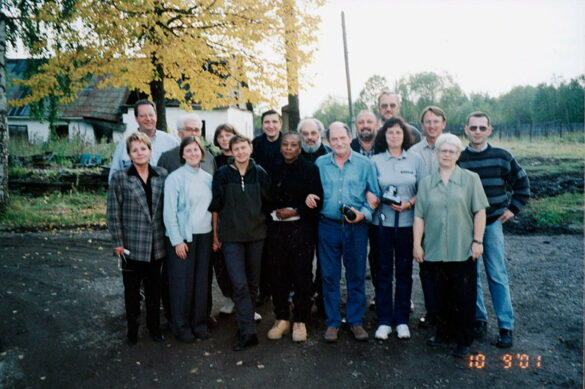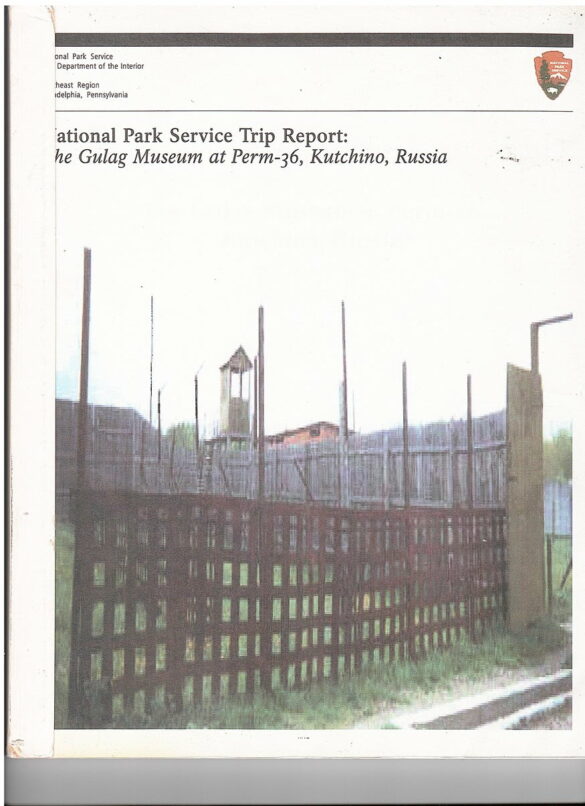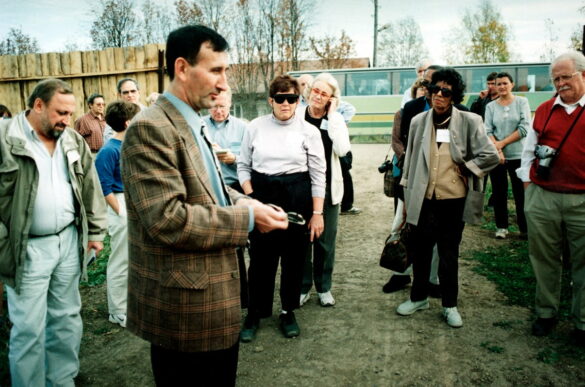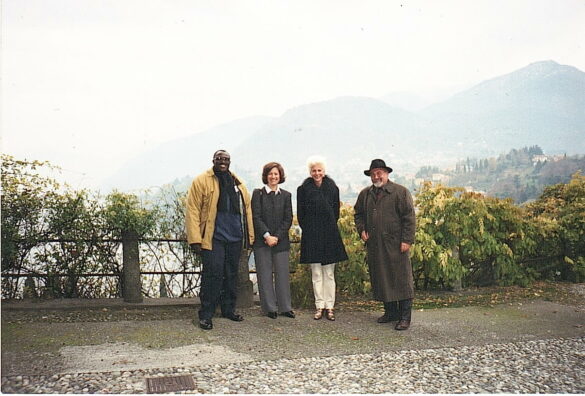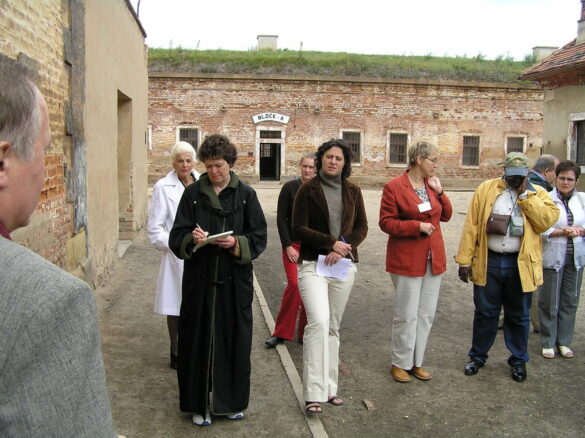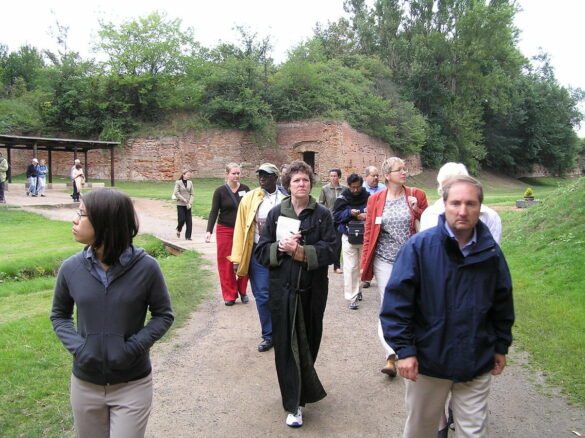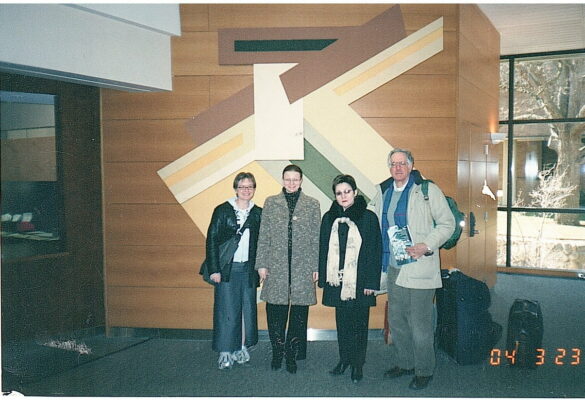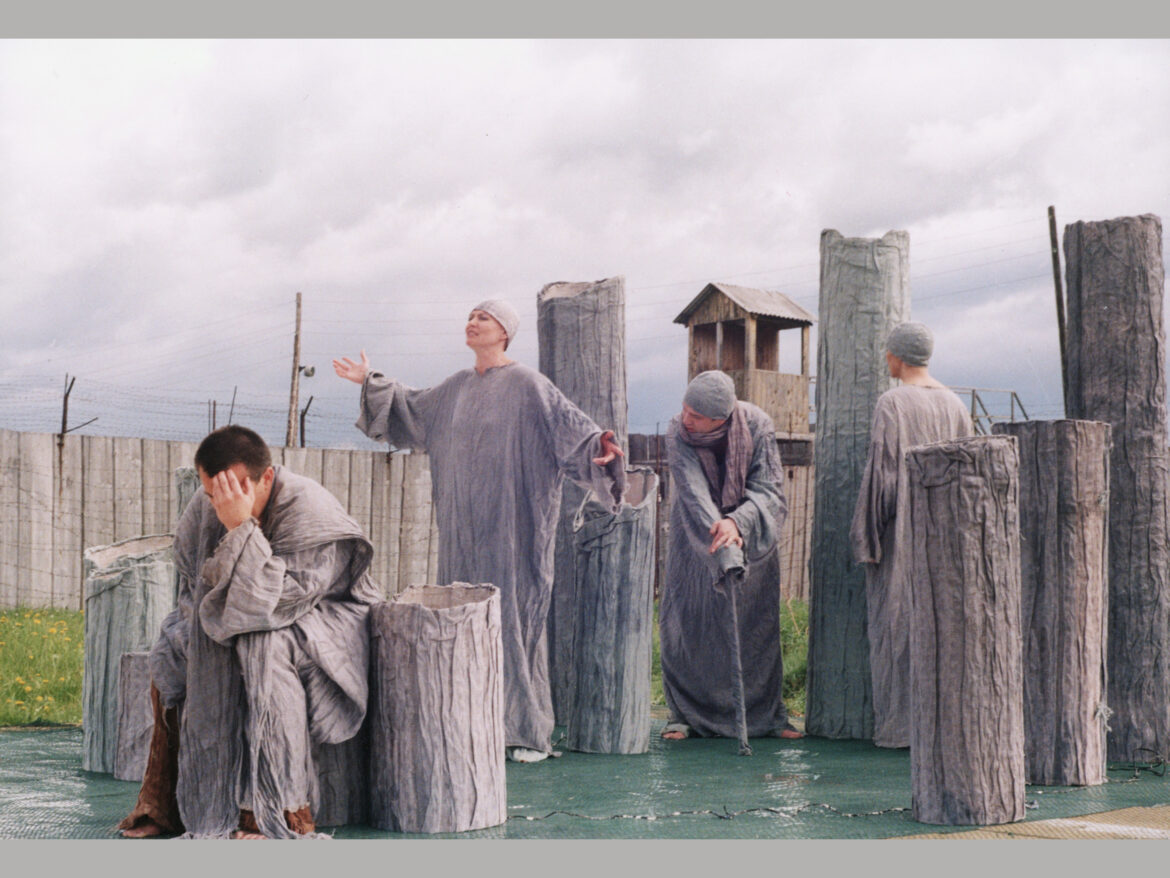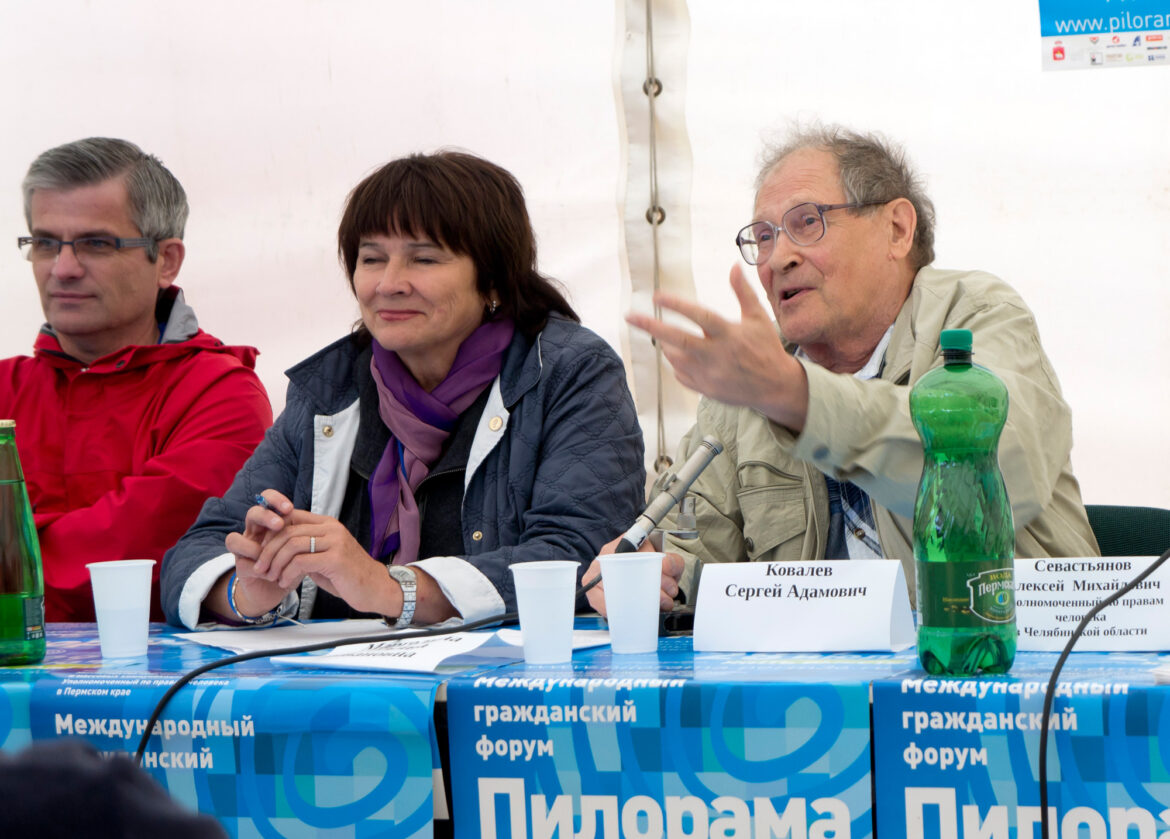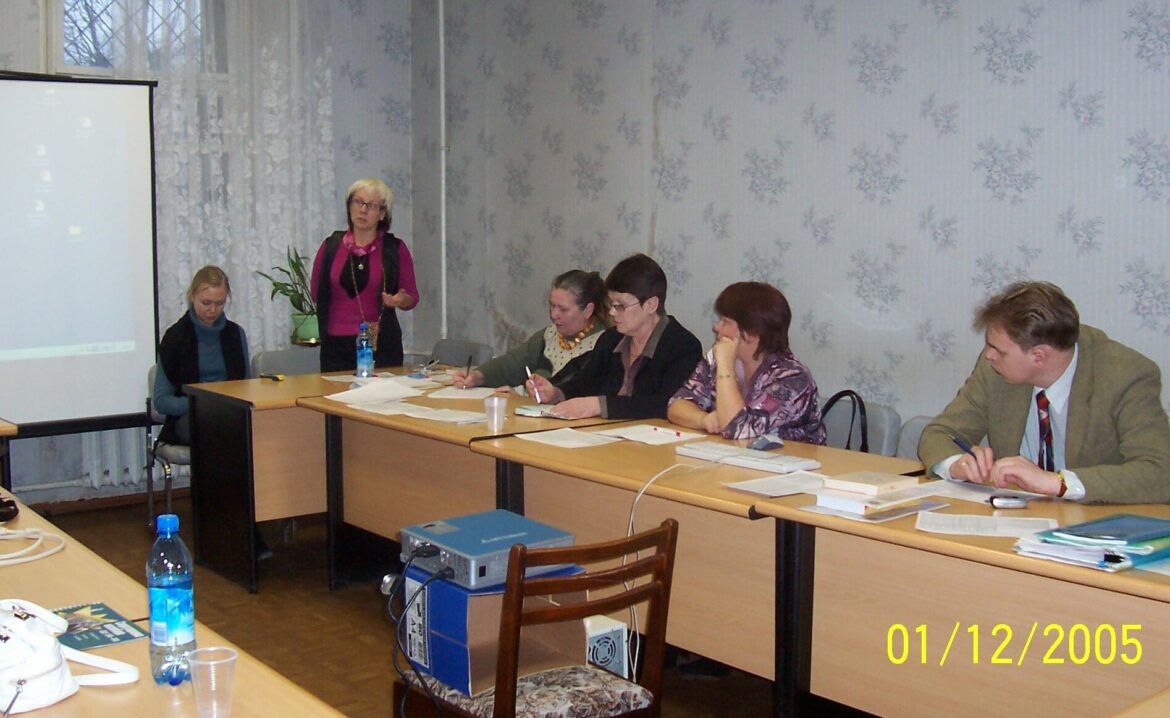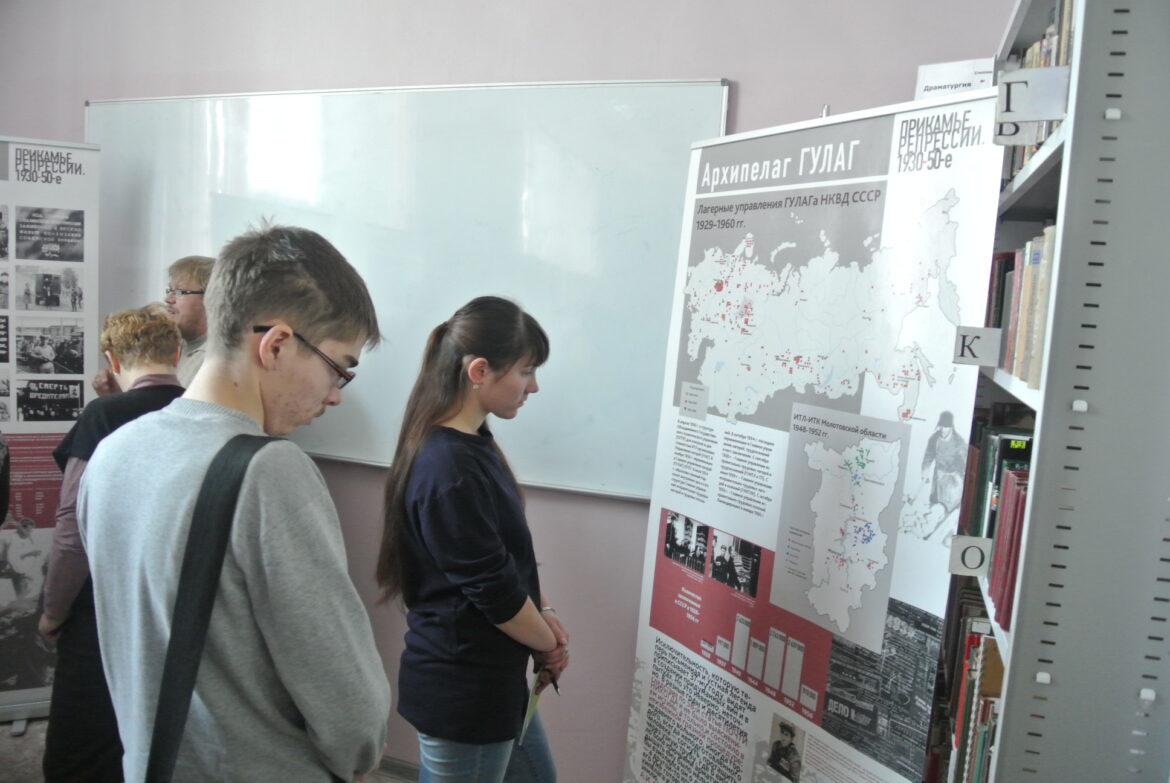Back in the first ten years, Perm-36 Memorial Center of History of Political Repression partnered with Ralph Appelbaum Associates (RAA), one of the world’s leading museum design companies which created over two hundred museums across the world. The founder and president of RAA, Ralph Appelbaum regards the Holocaust, nuclear bombardment of Japan and GULAG as humankind’s greatest disasters, his company built several Holocaust museums and museums exhibits, including the world-famous Holocaust Memorial Museum in Washington, the Peace Museum in Hiroshima dedicated to nuclear bombardment of that city, the Memorial Prison Museum in Robben Island in Capetown, and was very eager to create a GULAG museum.
Several meetings between the Memorial Center’s staff and the RAA representatives resulted in a draft concept of further museumization of the former Perm-36 camp and establishment of the GULAG museum which was submitted to the regional governor, Oleg Chirkunov by representatives of RAA and Perm-36 Memorial Center in 2011 году. The Governor approved it, and decided the new stage of negotiations for discussing the design proposal and signing the design contract to be held in May, 2012.
RAA designed such a proposal. The project provided for the exhibits to be designed stage by stage and built within five years. Arseny Roginsky, the President of Memorial International Society and Anne Applebaum who won a Pulitzer Prize for the ‘GULAG’ book agreed to act as academic advisers for the project, Ralph Appelbaum, the RAA President as the supervisor.
In early May, 2012, the Governor was replaced so the Memorial Center agreed on the new negotiation date with the new Governor via his assistant. However, when the RAA team headed by the company’s Vice President, Ralph Appelbaum and Perm-36 Memorial Center’s managers arrived to the negotiations at the set time, the Governor refused the meeting, and told via his secretary that this topic is ‘off the table’ to him.
балабанова
The guard barracks of Perm-36 camp the Memorial Museum received in 2011 were to be restructured into the museum’s project center comprising hotel facilities, a boardroom and classrooms. Thus it could be used to hold European-level workshops and schools involving leading Russian and European experts and specialists in civil society development, local governance, journalism, as well as to arrange vocational training of teachers of history and museum staff in the most challenging aspects of the country’s XX-cent. history, etc.
Yelena Nemirovskaya, the founder and director of the Moscow School of Political Studies guided its specialists as they began developing content, curricula and syllabi in four fields: ‘Civil Organizations and Civil Activists’, ‘Local parliaments’, ‘Local Governments’, ‘MM and Civil Society’ for the museum.
Other premises the museum received in 2011 were to be converted into a service center and extra showrooms.
INTERNATIONAL COALITION OF SITES OF CONSCIENCE
In 1999, the Perm 36 Memorial Museum of the History of Political Repression, together with the Lower Manhattan Tenant Museum, the British Workhouse Museum, the Czech Terezin Ghetto Museum, the Senegal Slave House Museum, the South African Cape Town Sixth Ward Museum, the Bangladesh Liberation War Museum, and the Argentine Junta Memorial Museum Project established the International Coalition of Sites of Conscience.
The coalition now includes more than 300 museums from 65 countries. All of these museums are generally associated with sites of national humanitarian catastrophes, but some, like the M. L. King House Museum and the E. and F. D. Roosevelt Estate Museum, are associated with powerful humanitarian breakthroughs.
The Perm 36 Memorial Centre for the History of Political Repression was the founder and director of the Russian Network of the International Coalition of Museums of Conscience, provided legal and methodological assistance to museums of the network, for seven years, organized trainings for their staff at the Summer School of Museum Studies, and found financial support and partners through the directorate of the Coalition.
One of the museum’s last popular projects was to unite tragic sites of adverse human experience, humanitarian crises with high world culture. In 2010, Michael Hunt, a UK stage director, and the orchestra and the company of Perm P.I. Tchaikovsky Academic Opera and Ballet Theater staged ;Fidelio’ an opera by L. Beethoven at the Memorial Museum, the former Perm-36 camp.
This experience underlay a new international project: In 2012 and 2013, meetings with staffs of museums, former Nazi camps: Bergen-Belsen, Auschwitz-Birkenau, Dachau, Buchenwald and Ravensbruck were held in Perm-36 museum, to develop the cooperation program. The project of staging ‘The Emperor of Atlantis’ by V. Ullmann at the Terezin Ghetto museum was started; the opera was written and prepared for the premiere in that ghetto nut never premiered because the musicians and the actors were sent to Auschwitz death camp.
The Sawmill Forum Debate Club mostly took place within the Forum but still quickly gained its own significance. Discussions, meetings and debates were held and lectured delivered continuously for two days of the Forum in several debating pavilions.
The club included leading Russian civil activists, former dissidents and prisoners, historians, sociologists and economists, political theorists and leaders who debated publicly on the most topical issues of social and political situation and development of today’s Russia, and analyzed Russian and global civil activity experience.
The Sawmill Debate Club kept on in the special ‘Sawmill–Continuation’ program all year round: once a month, the permanent club members met their audience, debated, reflected, answered questions, familiarized the audience with crucial civil practices at various outlets in Perm.
The School of Museology appeared in the museum virtually at the same time as the teachers’ workshops. It comprised two components: a two-week summer School of Museology for the Russian Museum Network of the International Coalition of Historic Sites of Conscience and a course of weeklong workshops for museum staffs of Perm Territory.
The Summer School of Museology was headed by Mikhail Gnedovsky, the founder of the Laboratory of Novel Museum Design, the director of the Institute of Cultural Policy, an expert at the Council of Europe, a juror at the ‘Best European Museum of the Year’ Contest, and had leading historians and museum workers form both Russia and abroad for lecturers and experts. Seven project which were started as the school participants’ individual projects, won the contest by Vladimir Potanin’s fund, ‘A Changing Museum in a Changing World’.
Weeklong workshops for museum staff which were started to familiarize municipal museum staff with the best contemporary museum practices, evolved into joint inter-museum projects. In 2010 to 2011, researchers from five museums of the region and from Perm-36 Memorial Museum worked on the ‘Vishera Correctional Camp’ project; as a result, the ‘Vishlag: The Vishera Correctional Camp (1925 through 1934)’ fixed exhibition was set up jointly in 2012 in Perm-36 Memorial Museum.
That same year, the School of Museology started a new joint project, ‘The Civil War in the Urals’, and planned further work on the ‘Vishera Correctional Camp’ project to set up thematic exhibitions in the cities where divisions of this camp existed but the work was interrupted by repression against the Memorial Museum.
Workshops on history of USSR for humanitarian teachers and lecturers
Weeklong workshops for humanitarian teachers and lecturers came to be held in the museum itself after the building of the former camp’s headquarters which was previously used by the psychoneurological care home was handed over to the museum in 2007. The museum used this building to equip classrooms and boarding rooms which could accommodate as many as 25 workshop participants at a time.
Long-term workshop plans and programs were published in the museum’s site. Workshop participants were selected by analyzing their questionnaires. Everyday work comprised lecture courses, training sessions and individual design work. In the end of a workshop, all participants defended their individual or joint auteur projects.
The classes were given by leading specialists: historians and methodologists from Perm Territory and the Russian Federation. The entire project was headed by Irina Karatsuba, the associate professor at Moscow State University and the Higher School of Economics, a text-write in XX-cent. Russian history.
The ‘History of Totalitarianism’ professional skills contest among teachers of history stemmed from the early practice of tutorial workshops for humanitarian teachers. The contest was held by the museum, Perm Regional Institute of Further Training of Educators and the Institute of Continuous Education for Perm National Research University.
In the course of the tutorial workshops, declared contestants developed auteur lessons and guidelines thereto and implemented these in their own practice under guidance of specialists from the Institute of Further Training and the Institute of Continuous Education. Auteur demo lessons were attended by specialists from these institutes, no matter how far the schools were from Perm. All demo lessons were captured on videos which were then viewed by the contest jury.
The contest winners received formal awards which were taken into consideration when classifying the teachers, and their developments recommended to participants of future workshops.
The ‘Lessons of History in the GULAG Museum’ project began soon after the museum was formally opened, by the research staff of Perm-36 Memorial Center taking documents and materials from the museum’s holdings to high schools and colleges in the region’s cities. It made grade when first the mobile exhibition service and established, then the showroom.
Next, the museum and the Institute of Continuous Education for Perm National Research University developed programs of workshops for teachers of history which involved leading specialists: teachers and historians both from Perm Territory and from Russia, including text-writers. The museum partnered with the Faculty of Philosophy of the University of Jena (FRG) which had wide similar experience of working with schools, the faculty’s staff and postgraduate students participating in the workshops on a regular basis.
Later on, the museum developed elective course on individual topics of Russian history, and published students’ learning aids and teachers’ guidelines.
The mobile exhibition service of Perm-36 Memorial Museum had several mobile thematic exhibitions, audiovisual equipment sets, collections of newsreels, documentaries, docudramas and slideshows on the XX-cent. Russian history.
The museum staff went out on regular expeditions, traveling all over Perm Territory and reaching the remotest villages where there had been no cultural activity for many years.
They rolled out two or three exhibitions in village clubs and high schools, gave excursions around the exhibitions, held classes on the ‘Lessons of History in the GULAG Museum’, discussions and outreach meetings, displayed slideshows and films, lectured while also interviewing in the course of the ‘Oral History’ program, collecting materials and exhibits.
The expeditions involved the lawyers from the Regional Board of Rehabilitation of Victims of Illegal Political Repression who gave advice to repression victims and their relatives.
‘The mobile exhibition service’ photo gallery



